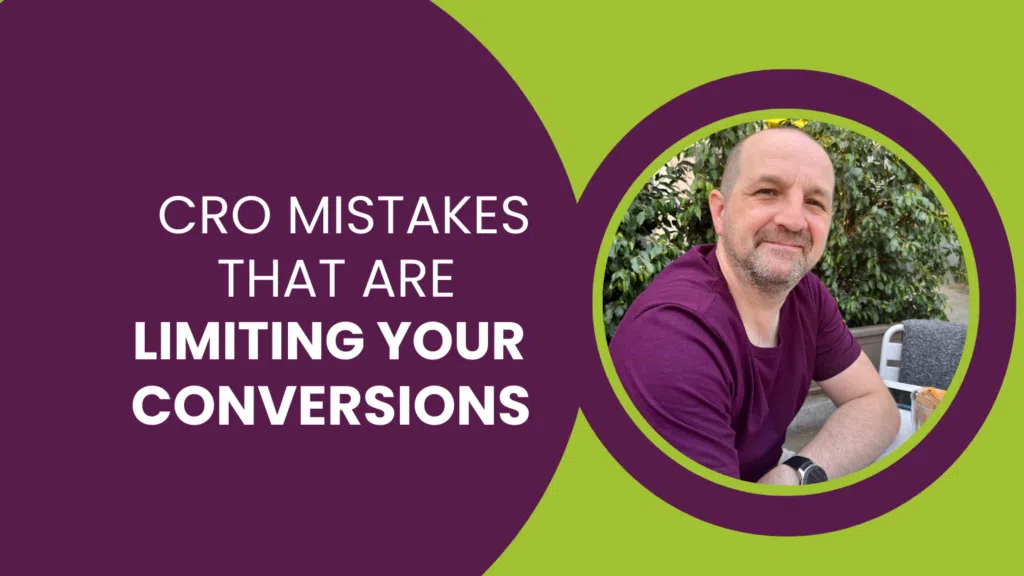In a world where consumers and businesses are evolving to be ever more digital (95% of startups already have digital business plans), how you advertise or display your services online can make or break your chances of success. That’s why your business needs a blog.
You wouldn’t fail to make a website, and you’d be a fool to completely ignore social media as a useful marketing tool; the same goes with the creation of a blog. A business would be negligent to disregard creating a business blog, and with so many tools available, it has never been easier.
Almost all self-built websites from the likes of WordPress to Squarespace will come with their own blogging features. For sites that have been privately developed, just ask your developer. There isn’t any excuse for you not to be doing blogging, and here are some pivotal reasons why it is so important for your business.
But first of all…
What is a blog?
A blog represents a type of website or online space where individuals or groups regularly share written content on specific subjects. The term ‘blog’ is essentially a shortening of ‘weblog.’ Blogs commonly showcase entries or articles resembling diary entries, all arranged with the most recent posts appearing first.
Blogs can span a diverse array of topics, including personal experiences, hobbies, opinions, news, reviews, tutorials, and more. They can be crafted by individuals, professionals, organisations, or collaborative teams. Additionally, many blogs encourage reader interaction through comments, fostering discussion and community engagement.
Various blogging platforms, like WordPress, Blogger, Medium, and others, simplify the process of creating and managing blogs, eliminating the need for extensive technical expertise. Some bloggers opt to host their blogs on custom websites or domains to exercise greater control and customisation options.
Why blogging is important for your business
Blogging holds significant importance for businesses due to several key reasons:
Enhances Online Visibility: Regularly publishing high-quality blog content helps improve a business’s online visibility. Search engines favour fresh, relevant content, and having a blog allows a company to continually update its website, increasing its chances of appearing in search engine results pages (SERPs).
Drives Website Traffic: Blogging can attract more visitors to a business’s website. Each new blog post creates a new opportunity for engagement and can be shared across various online platforms, driving traffic back to the company’s website.
Establishes Authority and Expertise: Through informative and valuable blog content, businesses can showcase their industry knowledge and expertise. Consistently providing valuable information helps build trust with readers, positioning the business as a thought leader in its field.
Supports Lead Generation: Blogs are effective tools for generating leads. By offering valuable content, such as ebooks, whitepapers, or newsletters, in exchange for contact information, businesses can capture leads and nurture them through the sales funnel.
Fosters Customer Relationships: Blogging allows businesses to engage with their audience on a more personal level. Through comments, social media shares, and email subscriptions, companies can build relationships with their customers, fostering loyalty and brand advocacy.
Provides Content for Social Media: Blogs serve as a rich source of content for social media marketing efforts. Sharing blog posts on social media platforms extends the reach of the content and encourages audience interaction and engagement.
Supports SEO Strategies: Blogging complements search engine optimisation (SEO) efforts by providing opportunities to incorporate relevant keywords and phrases into website content. Well-optimised blog posts can improve a business’s ranking in search engine results, driving organic traffic to the website.
Keeps Website Fresh and Current: Regularly updating a blog with new content signals to both users and search engines that the website is active and relevant. This can positively impact website rankings and encourage repeat visits from users.
It can help you convert your traffic into leads
You can turn website traffic into valuable leads by using smart strategies. When visitors come to your site, especially through your blog, you have a great chance to convert them into leads.
Think of each blog post as a new way to generate leads, just like adding another indexed page to your site. It’s simple: include a compelling call to action in every blog post.
These calls-to-action encourage visitors to check out various offerings like free ebooks, whitepapers, webinars, or trials – basically, anything that’s valuable to them in exchange for their information.
For those who aren’t familiar with the process, here’s a quick breakdown:
Visitors come to your website.
They see a call-to-action offering something for free.
Interested, they click on the call-to-action and go to a specific page with a form.
They fill out the form, submit their info, and get access to the freebie.
It’s great for answering customers’ questions

For your blog to have any level of success you’ll want to be doing one simple task: answering questions. Most people looking for quick fixes or how-to guides start with a search on Google or Bing, so you need to be trying to position yourself as high up the rankings as possible to ensure you’re reaching your audience.
To do this successfully, you should be anticipating what your audience may be asking. You can run a few simple Google searches yourself to see what sort of questions are most popular, and this will also allow you to see what hasn’t been answered and fill those gaps.
Once you have hooked your readers, all you’ll need to do is keep them. A great way to do this is to link your blog post to others you have written that might help the user answer other similar or related questions.
This is also a great way to set yourself apart from your competitors. Your content could cover a niche topic that they haven’t touched on yet, or you could provide both a video and blog post when they’ve only made one.
It creates brand credibility
Besides just offering your target audience a place to learn new information, you’ll also be looking at showing them that your brand is a specialist in this field. The more blogs and topics you’re able to write about, the more you demonstrate your expertise. If you’re going to grow and maintain an upward trend, a blog is a great way to increase your brand trust within your audience.
Whether you are in finance, the arts or anything in between, you can become a thought leader in your industry. Using a blog to share, express and convey your expertise is a great way to connect with your audience and by doing so you will increase your brand awareness and credibility. Not also this, but you’ll also be giving your business a voice, humanising it so that potential customers are more likely to take an interest in your product or service.
Blogs improve Google rankings and can help with link-building
The difficulty many businesses face is that search engines like websites that are updated regularly. But how exactly can this be done once you have the perfect site and your prices or services remain the same indefinitely?
Writing a regular blog is how. Keeping the rhythm of pushing out blogs and publishing them to your site gives Google more reason to crawl your site looking for new and pertinent content. Based on its findings, it will then determine how far up the rankings you should be placed. A blog won’t be the only answer, but that coupled with good SEO practices and a well-written and structured website will go a long way.
What Google is looking at is how relevant the blog is, as well as how reliable and useful it is going to be to its users. It is Google’s job to present the best content to the searcher. This is where it is important to link your blogs to the source material and keep them well-written.
Make sure you have relevant meta descriptions and titles for the blog, and that your content is relevant to your headings. If you find this task daunting and struggle to write the blogs yourself, you can always seek the support and help of a digital marketing professional to help you out.
As well as linking out to trusted sources, you can encourage others to link their content to your article. This will happen naturally when you become more visible and have a larger audience, but until then you can try doing this through outreach, guest blogging and engaging directly with people on social media.
It helps you create community and conversation

Creating regular posts won’t just help with your SEO – it will also come in handy when it comes to Twitter, Facebook and any other social media platforms you use. You will always have a back catalogue of content to link to and create discussions about, and you can also use this as a way to share industry news, showing that your business is up to date.
The best part is, the more you put on your blog, the more you’ll have to share on social media so keep your online presence flowing. This will result in an increase in followers and engagement, so you’ll be able to join or build a community on social media. This tactic is also great for driving traffic to your website, and can result in more leads and conversions.
It helps to diversify your customer base
A blog is a fantastic way to introduce your brand to people who otherwise may not have heard of you before. Whether you are a locally based business or operate solely online, through the use of effective blog content, you can expand your reach to a limitless audience.
If you are smart about it you can do your keyword research and sculpt your blog to be more likely to appear in certain searches, which can be great when targeting users of local dialects or from particular regions.
There’s a common misconception that businesses’ blogs are giving away knowledge and secrets to customers they’d rather charge for, but remember that you’re not giving anything away for free. When a customer reads your blog posts, you are increasing your brand awareness, trust and credibility.
The person reading your blog today may not call you up straight away, but when they need what you provide, your name will be at the forefront of their mind. Even if they don’t call, they are likely to tell a friend who is looking for help and they may come and check out your blogs for themselves and repeat the cycle. If you help answer someone’s question now, you will reap the rewards further down the line.
It’s free – in more than one way
Unlike other forms of marketing, blogging is essentially cost-free and without limitations. You can really go to town on how much or how little you put into your blog. If you want to write a 5,000-word review on the benefits of a certain product, nobody is going to stop you – whether or not someone will read that much is another conversation to be had.
The fact of the matter is you are free to find what works best for you and develop that. The only investment you’ll be making is the time it takes to write your blog.
The overall benefits of a blog go beyond just the measurable results and as it doesn’t cost you anything to produce, it could potentially be the most cost-effective asset you have at your disposal.
It’s great to attract people unsure of what they need
While you may be sitting nice and high in the search engine results pages (SERPs), you are probably ranking mainly for specific keywords that relate directly to your business and services. While this is ideal in the scenario where a customer knows what they are looking for and you have targeted the right words, it’s not uncommon that the average consumer perhaps isn’t sure what they want.
Blogs can be a highly effective way to hook in the people searching for broader terms and to convince them to consider a solution to a problem they hadn’t realised they were experiencing. For example, this technique would work well for those who undertake a manual task when there is a tool available to make it easier, more accurate and reliable.
It opens your brand to a greater audience
Once your blog becomes more established and you are considered a trusted source, you can begin to incorporate third parties. There are a few ways in which you can do this and one of them is guest blogging. Some guest bloggers will want to sell you a blog you can then publish, there are those who will actually pay you to feature one of theirs, and, of course, some who do it for free.
However you decide and arrange to publish someone else’s blog, the outcome is still the same: it gives you a heightened sense of respect and expertise to have contributions from other writers. Not only does it give your readers a different perspective and voice to read, but it can also allow you to invite industry experts to write to you.
This is a great tool and platform for them to get their voices heard and for you to reach wider, more extensive networks of readers. When inviting guest bloggers, just remember that you don’t have to publish every submission – you can afford to be picky to find the right tone, style and content to fit your brand.
It helps you establish authority
Blogging is a great way to establish your business as an authority in the industry.
Writing about up-to-date issues, events and news quickly puts you in an authoritative position that readers will begin to trust more over time. Through the chosen tone of voice and style of writing, you can quickly become a well-known name for those keeping your audiences up to date with industry insights and the latest news.
Over time readers will recognise your name as having the knowledge and experience that they can trust and reply upon, and it’s at that point you will start to see your readership and website visits increase substantially.
Conclusion
The potential for your blog to drive success to your brand is huge and shouldn’t be overlooked. As time goes on you will refine your style, technique and writing to make this even more effortless and natural, and therefore begin blogging for SEO purposes.
By providing your audience with an alternative use for your website other than selling, you’re gaining their trust and enhancing that all-important brand trust. It’s not going to happen overnight, but the effects won’t take long to show. Everybody has it in them to learn these skills and if you need a little help along the way, there’s no shame in seeking it out. There are even blogs out there on how to blog.
If you enjoyed this piece on why you need a business blog, leave us a comment below or tweet us @TeamTillison. In the meantime, why not check out our SEO training courses to learn how to create a blog from scratch?
FAQS
Do I need a blog for my small business?
Whether you need a blog for your small business depends on your industry, target audience, and marketing goals. Consider if your audience engages with blog content if it fits into your content marketing strategy, and if it helps establish your brand’s authority. Evaluate its potential for customer education, SEO benefits, competitive advantage, and resource allocation. If it aligns with your goals and resources, a blog can be a valuable marketing tool to consider alongside other content channels.
What are the pros and cons of blogging for business?
Pros:
- Blogs can bring more visitors to your website, helping to increase overall traffic.
- They can help improve your website’s visibility on search engines by using relevant keywords.
- Blogging can establish your expertise in your field, which builds trust with your audience.
- It allows for engagement with your audience through comments and social media shares.
- Blogs can assist in lead generation, guiding potential customers through the sales process.
- Blogging is a cost-effective marketing strategy compared to traditional methods.
Cons:
- Creating quality content for a blog can be time-consuming.
- Results from blogging, such as increased traffic, may not be immediate.
- Poorly written blog posts can harm your reputation and fail to engage your audience.
- Consistency is required with regular updates to maintain a successful blog.
- It can be challenging to stand out in a crowded blogging landscape.
- Measuring the direct impact of blogging on business outcomes can be difficult.
How often should you blog for business?
For most businesses, consistency is vital in blogging. Post high-quality content regularly, whether weekly, bi-weekly, or monthly. Consider audience preferences, available resources, and SEO needs. Experiment with posting frequencies and analyse results to determine what suits your business best.
What are the most successful types of blogs?
The types of successful blogs often include:
Educational/Instructional: Providing valuable information and guides.
Lifestyle/Fashion/Travel: Covering various lifestyle topics such as fashion, travel, and health.
Food/Cooking: Sharing recipes, tips, and restaurant reviews.
Personal/Storytelling: Sharing personal experiences and reflections.
Niche/Specialised: Focusing on specific topics or interests.
Review/Comparison: Offering detailed evaluations and recommendations.
Success depends on factors like content quality, engagement with the audience, consistency, and promotional strategies. Choose a niche that matches your interests and audience preferences.






